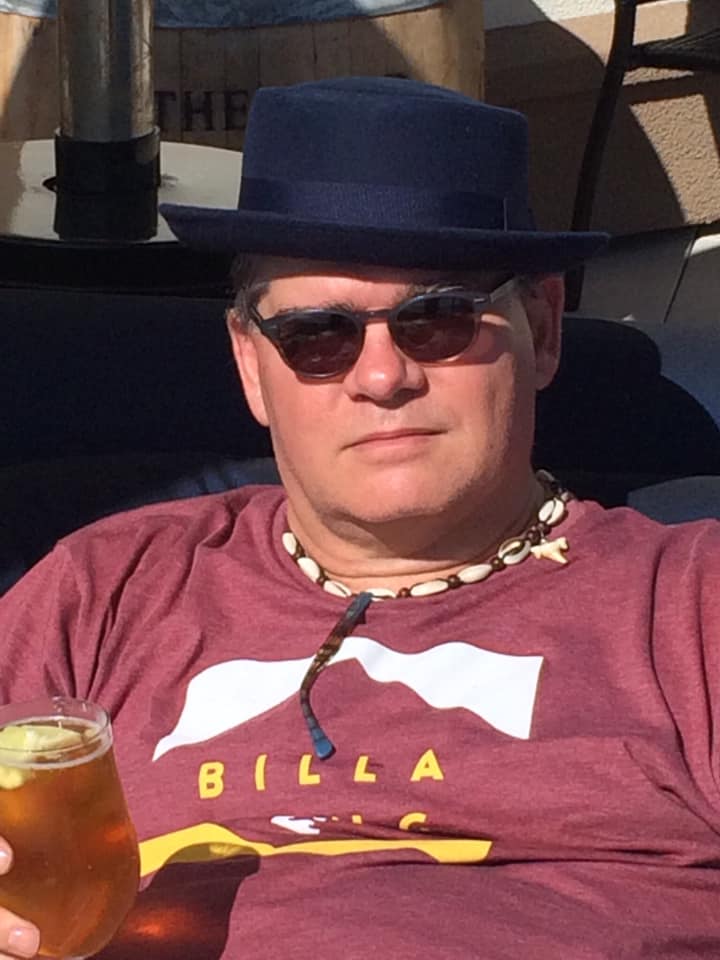By Phil La Duke

“Most people are about as happy as they make up their minds to be”—Abraham Lincoln
About a decade and a half ago I was miserable. Not just unhappy, but miserable to be around, miserable when I was alone. I was the kind of person that most people could imagine being found dead a week and partially eaten by his pets.
I came by my unhappiness honestly. I was laid off from my job as an autoworker along with 60,000 other workers, was out of work for almost two years, destroying all my pride and ego and tearing away any shred of dignity I had to try to provide for my wife and infant. That led to a bitter divorce and a virulent child-custody case that left me depleted and emotionally drained.
Without many options, I used the meager tuition assistance plan offered by my former employer and went back to school, I found a job that paid a third of what I had been making and was also going back to college; scraping together money to pay tuition and to pay my lawyers; I was perpetually broke, all the while worrying about the state of my daughter’s welfare. I fell into a depressed funk that lasted over 15 years.
A short while after my divorce I began travelling extensively for work, leaving my daughter in the care of my sister or mother when I jetted off here and there. Work travel is intrinsically depressing, or so I thought; it’s fraught with details that you can’t control, and there are dire consequences if you messed up the details (missed flights, no hotel room, no rental car) .
I was a perpetual grouch. I groused about flight delays, slow service at car rental offices, and…well let’s just say I became a master at finding fault. I EXPECTED things to go wrong and the world never failed to disappoint. I was misery incarnate, I was afraid to enjoy anything for fear that life would throw another fastball at my head.
Then one day, inexplicably, as i was chewing out an airline employee for a late flight that caused me to miss my connection, I saw myself for what I was: a miserable jerk. I didn’t like what I saw, in fact, I was embarrassed and ashamed of who I had become. In that moment, I had an epiphany: I could change myself. I couldn’t control poor service and all the things that enraged me BUT I could control how I reacted to them. I remember the moment vividly how I walked back to the customer service counter and apologized. I told the employee that I realized that what had happened was not her fault and that I was sorry and ashamed to have acted that way. She was kind and understanding in a way that anyone who gets verbally battered and abused for a living would , like a corporate equivalent of a battered spouse or a punch-drunk prize fighter after his last fight.
I wasn’t satisfied so I decided I was sick and tired of feeling sick and tired and resolved to do something about it. I set about changing my life in a way that was both ridiculously simple and excruciatingly difficult: I would compliment three times more often than I complained. As simple as it seems to compliment people often, I made it tough on myself. The compliments, I decided, had to be sincere (there’s no sense reinforcing bad behavior), and with as much vehemence as the complaint (so if I was angry enough to call the CEO to complain I had to call three CEOs to compliment someone who deserved it ) and I found it really difficult to find someone three times for each complaint.
And then the universe revealed itself to me. First, I started actively looking for people doing a good job. This change became the foundation for my transition to happiness. As I looked for the good in people I found myself empathizing with employees I once found so infuriating. “How must that airline gate agent be feeling to have all these enraged passengers yelling at her because of a weather delay?” I would ask myself. I realized that when things go wrong at a hotel, or grocery store, or restaurant that I wasn’t the only person being inconvenienced and that the rage and hostility was to be borne by one person (or in the best case a small group of people). I realized ticket agents in airports didn’t like delays, car rental offices didn’t like running out of cars, in fact, when things went wrong, the employees feel it more acutely than I ever would. My empathy changed my nonverbals — my tone of voice, the look on my face, my posture. When it was my turn, I flipped the switch. I would great people with a smile. I would say please, and thank you. I would acknowledge what a horrible day they must be having. Instead of making demands I asked for their help. I would ask if there was anything I could do to help them. I focused so much on how OTHER people were feeling that how I felt about the situation was pretty much inconsequential, and one day I realized I was happy.
But I didn’t stop there. Instead of merely reducing my complaints (chiefly because I didn’t want the hassle of finding three people to compliment) I started complimenting whenever I saw someone doing a good job. I started asking to speak to managers to tell them what a good job their people were doing. Like Faust, I found myself becoming happiest by making other people happy. I also learned to make the proverbial lemonade out of life’s lemons. My plane is delayed by weather for an hour? I’ll get some exercise and take a brisk walk through the airport. My rental car isn’t ready? I’ll take a cab and ask the manager if he can help me by delivering the car to my hotel. Little by little I found myself overlooking life’s little imperfections, I patiently waited in line, I greeted beleaguered hotel clerks with a smile and genuine cheerfulness, and then life changed again…
I began noticing that people—most people—started to treat me better. Clerks and waitstaff remembered my name even though I had only seen them once or twice, I got hotel rooms up-graded “for waiting so patiently and being so nice”. My outlook had changed and I saw, and continue to see, the world in a different light; not for what it is, but for what it can be if I just try to interject a little positive energy into it. Yes bad things still happen, but now I am disappointed not enraged, I move on and look forward to something better that invariably comes my way. And for the record, I’m not special. I am not doing anything you can’t do. Life is full of random events and you can either categorize them as fortune or misfortune, and the way you categorize life’s curve balls determines whether you will be happy or unhappy; it’s choice. And as for Abraham Lincoln, he was wrong, at least when it came to me. I am far happier than I ever made up my mind to be.
About the Author

Phil La Duke is a popular speaker & writer with more than 400 works in print. He has contributed to Entrepreneur, Monster, Thrive Global and is published on all inhabited continents. His most recent book is Lone Gunman: Rewriting the Handbook On Workplace Violence Prevention listed as #16 on Pretty Progressive magazine’s list of 49 books that powerful women study in detail. Follow Phil on Twitter @philladuke or read his weekly blog www.philladuke.wordpress.com


